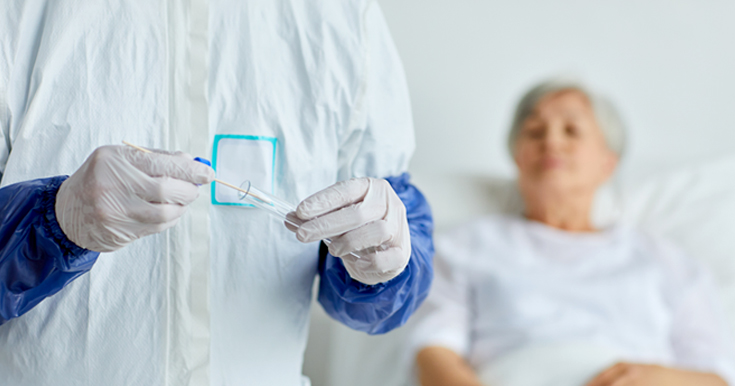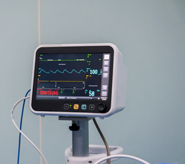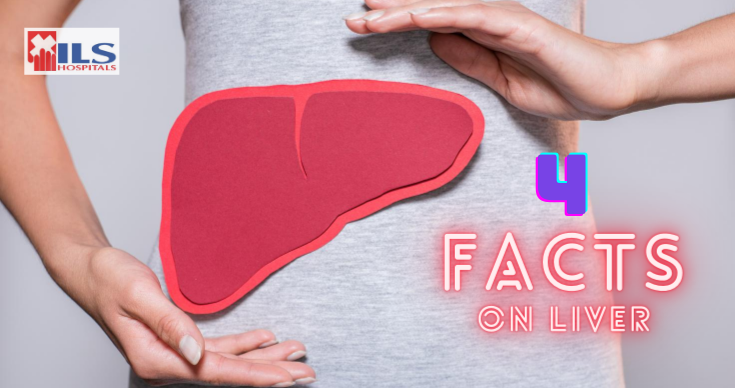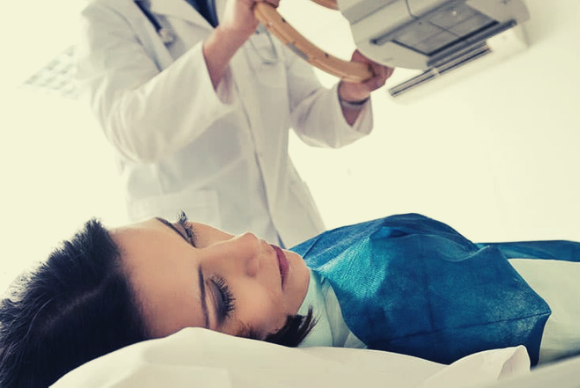Know More About Patients with Heart Condition and Corona Virus
More than a year ago, the coronavirus grappled the whole world with pain and anguish. As the invisible monster spread through the world, it devoured more and more people in its might.
The world has not recovered yet, and the wounds are not healed. But now, we have a grasp on the situation and the possible remedy.
Coronavirus is a significant threat to humanity. But doctors and experts have warned about its potency on people with heart conditions. Heart ailments increase the risk of fatality by Coronavirus.
In the following sections, we will see the causes, concerns, effects, and precautions for heart patients impacted with coronavirus.
The Heart and Coronavirus
When the Coronavirus attacks the system, the functioning of the lungs is dreadfully impacted.
Lungs and heart work together for maintaining the oxygenation system in the body. When the virus infects the lungs, the heart also takes the hit. The pumping capability of the heart diminishes and can also be fatal.
Risks of Infection
Following are the Coronavirus risk associated with people with weak heart health:
- Older people or people above 65 years of age are more prone to Coronavirus infection. The majority of older people have a weaker immune system putting them at greater risk of Coronavirus infection.
- People with high blood pressure or coronary artery dysfunction are likely to get affected by Coronavirus.
- Coronavirus infects people with a history of heart stroke or heart surgery. Due to the stroke, the oxygenation process is already affected.
And if Coronavirus attacks the system, it further hampers the functioning of the heart. Usually, this restricts the blood flow to the brain and other parts of the body, thus increasing the complications.
- People with congenital heart diseases can also get affected by Coronavirus. Coronavirus makes the blood circulation mechanism worse.
- Peripheral Artery Disease (PAD) also increases the risk of increased Coronavirus infection.
Prevention
The government and healthcare institutions have been vocal about the safety precautions from Coronavirus. But are the precautions different for heart patients? Let’s understand.
- Wash hands regularly with soap for at least 30 seconds or use sanitiser with 60% alcohol content
- Avoid touching your eyes and face
- Maintain a social distance with a distance of 6 feet between you and other people
For the patients with heart conditions
- Take this as an opportunity to revise your diet. Eat healthy meals loaded with nutrients and modify your cooking habits
- If you can’t go outside, stay active inside the house. Indulge in exercising and Yoga to maintain good physical and mental health
- The pandemic infused a lot of stress in the environment. Heart patients are remarkably advised to keep the stress at bay. Use stress management techniques to feel relaxed and positive
- If you have a smoking habit, it is an excellent time to end it. Smoking makes the lungs weak, and hence they become prone to Coronavirus infection
- Take your medications regularly
- If you feel any discomfort in your health, immediately consult the doctor
Conclusion
Coronavirus has shaken the whole world. And it’s not the end. But we can always be vigilant for our health and prevention from the virus.
It is in our hands to be safe. It is in our hands to be healthy. If you already have heart conditions, you can visit https://www.ilshospitals.com/ during this covid situation.
How To Prevent Heart Diseases
We often overhear about a seemingly healthy person passing away from an unanticipated heart stroke. one doesn’t know what’s going on in their body and in what ways it can contribute to the illness unknowingly. It’s extremely essential to start taking care of your health. Heart diseases have become a significant cause of deaths in India, and there is a crying need for spreading awareness about it. We have listed down a few measures to prevent heart diseases and lead a healthy life.
Maintaining A Healthy Weight
Obesity poses an influential risk of heart disease as it manipulates your triglyceride and cholesterol levels. Diabetic people are a majority in the population of those who suffer from heart illnesses. Try adopting a healthy lifestyle by cutting down sugar and eating the right amount of greens. It is important to not let obesity come your way as it makes way for numerous other diseases.
Controlling Blood Pressure
Any individual, irrespective of age, should get their blood pressure checked regularly, if not very frequently, at least once in a year. It’s the fluctuating blood pressure that triggers most of the heart problems. If you are already suffering from heart illness, you should be in constant touch with the top heart hospital near you and keep their contact handy.
Exercise Regularly
Going for a run every morning or partaking in any kind of physical activity for an hour a day improves the blood circulation in your body, and your arteries function well. In this way, blood pressure can be maintained at an optimum level, and hence, the risk of heart diseases is reduced.
Eat Healthy And A Balanced Diet
Many people work out strenuously but don’t give up on the junk food they consume. Further, this cancels out the benefits they are supposed to acquire through the exercises. Reduce your portions and include more and more veggies in your diet. Beans, legumes, fish, meat, low-fat dairy products, fruits, etc. will help you against diabetes and lessen your chances of catching any kind of heart disease too.
Get Enough Sleep
When you don’t stick to your proper seven-hour sleeping schedule, your body drains out, and you keep feeling exhausted all the time. It contributes to high blood pressure, diabetes, and obesity. If you have irregular sleep conditions, contact the best heart hospitals in Kolkata, India, and for that matter, any heart hospital located in major cities.
Stress Management
Stress is a trigger for heart attacks and strokes as it increases blood pressure in the most common situations. In today’s scenario, stress has become one of the main reasons for heart-related issues in all age groups. It is important to cope with stress in the healthiest ways like listening to calm music, exercising, meditating, practising yoga, etc.
Quit Alcohol Consumption And Smoking
Alcohol affects your body negatively in many ways. It makes you gain weight, increases blood pressure, and contributes to organ failure. Similarly, smoking causes the accumulation of harmful substances in the arteries and restricts blood flow. It is also one of the leading factors for coronary heart diseases, strokes, and attacks.
The cardiologists at ILS Hospitals handle multiple cardiological subspecialties. These include, but not limited to the followings:
Cardiac arrhythmia – Persistent irregular heartbeat, which is either too fast or too slow. It is of 2 types, more than 100 beats per minute are called tachycardia and below 60 beats per minute is called bradycardia.
Coronary artery disease, or ischemic heart disease – it includes diseases like stable angina, myocardial infarction, unstable angina, and sudden cardiac death.
Cardiac arrest – a sudden failure of heart contraction that leads to the stoppage in the effective blood flow.
Hypertension – Persistent high blood pressure in the arteries reaching the heart. A prolonged condition can lead to coronary artery disease, vision loss, chronic kidney disease, stroke, heart failure.
Congenital heart defect – Presence of a defective heart since the time of the birth. The consequences can vary from none to life-threatening.
Keeping a close watch on your heart and getting checked regularly is a need of the hour. If not discovered at an early stage, the heart-related problems could become a fatal and substantial risk to your life. Find out the top heart hospitals near you and visit them once in a while as a precautionary measure. If you live in a rural area, get yourself equipped with contacts of big hospitals so that in the time of need, you won’t have to wander cluelessly and know what to do right away. For example, if you live somewhere in the northeastern part, locate the best heart hospitals in Kolkata, India, as it is the nearest metro city and contact www.ilshospitals.com in case of any emergency.
The Know how of Bariatric Surgery
Obesity is a major health risk. It can lead to many cardiovascular diseases, high blood sugar or diabetes, high blood pressure, trouble in your bones and joints due to excessive weight, sleep apnea, gallstones and even a contributing factor to some cancers. Bariatric Surgery includes a series of surgical procedures that involve making changes to the digestive system to help people lose weight. Bariatric surgery provides a safe and comparatively, long-term solution for weight loss.
Types of Bariatric Surgery
There are a few types of procedures for weight loss surgery. They are:
- Lap Band: A surgical procedure to lose weight, here, a silicone band is wrapped around a part of the stomach to create a smaller food pouch. The food eaten is then stored in this smaller pouch. The band can be adjusted to make the pouch bigger or smaller as per the requirements. This band can be removed after achieving the desired weight loss.
- Gastric Sleeve: Here, the stomach is reduced by 60-70% vertically. It is also known as the vertical sleeve gastronomy. The thinner stomach which is like a tube is stapled to be connected to the esophagus and small intestine.
- Gastric Bypass: Gastric Bypass is a slightly more complicated method, also known as the Roux-en-Y method. It involves creating a smaller pouch out of the stomach by stapling it and using the rest of the stomach to digest enzymes. Along with it, the small intestine is cut to a certain length and then connected to the smaller stomach so that lesser nutrients are absorbed.
Advantages of Bariatric Surgery
When it comes to weight loss, laparoscopic bariatric surgery is a highly effective way to lose weight for the morbidly obese. Other than losing weight, it also has many other benefits like improved cardiovascular health, better body image which leads to a healthier mood, reduces or eliminates obstructive sleep apnea, provides relief to the joints and improves fertility among women. It also alleviates as well as prevents other medical conditions like complications in pregnancy, gallbladder diseases, etc.


For people with a BMI above 35 and serious health issues, bariatric surgery is ideal for permanent weight loss and to improve your health. ILS Hospitals, a multi-specialty hospital that is renowned for safe Bariatric Cares urgery under the guidance of Dr. Om Tantia, with 32 years of experience. He is also accredited as “Surgeon Of Excellence” by SRC. The Bariatric Care division is ideal place to get a safe surgery done without worrying about your health and side effects. The Pioneers in Laparoscopic Surgery, ILS Hospitals have 4 branches in the city out of which the Salt Lake branch has the Bariatric Care division. For any queries, consultations or to know more, visit www.ilshospitals.com.
4 Outstanding Facts On Liver By The Best Hospital In Kolkata
A liver is an amazing organ that requires no further introduction. Your liver performs essential functions, like detoxifying the body and storing vital nutrients.
Recommended Read: Signs Of A Liver That’s Damaged And Requires Liver Treatment
Today, ILS Hospitals, one of the best hospitals in Kolkata and Agartala will tell you 4 outstanding facts on liver so stay connected!
Your liver can regenerate itself
Yes, you heard that right. It’s an absolutely correct statement. A liver can completely regrow itself from 25% to 100 % in a matter of weeks. When a person donates 75% of his or her liver then the liver can regenerate itself to its original size in two weeks without fail.
Healthy liver = Well-functioning brain
Your liver regulates plasma glucose and ammonia levels in the body. If these two enzymes are not regulated then it will lead to a serious medical condition called hepatic encephalopathy (declined brain function) that can result in a coma. So, yes, admit it, a healthy liver is crucial for a healthy brain.
Liver is important for drug metabolism
Oral medicines are first converted by the liver for the body to accept and if your liver does not or is unable to perform this vital function then no matter how much effective the oral medicines are, they just won’t work.
Our liver is the second largest organ in the body
The liver weighs more than 3 pounds and is the second-largest organ in the body. So, which one is the first largest organ? Well, it’s your skin.
Since the liver is such a superstar organ, it needs great care and love. An unhealthy liver can lead to serious liver ailments, like fatty liver disease and cirrhosis. If you want your liver to be young and healthy, then take note of the following things:
- Eat a healthy and balanced diet
- Maintain a healthy weight
- Ditch your sedentary lifestyle
- Avoid hepatitis B and hepatitis C infections
- Quit smoking
- Drink alcohol moderately
- Get regular medical checkups
If you need liver treatment in Kolkata and Agartala, consider ILS Hospitals. Our several healthcare units in Kolkata and Agartala aim to provide accurate and effective liver treatment.
How To Take Care Of Your Vision
Eyes are one of the most important sense organs which allow us to see this beautiful world. A good vision is something which we all must maintain so that we never encounter any eye-related problems in the future.
ILS Hospitals would like to present some valuable tips for healthy eyesight. Without any further ado, let’s take a look at them.
1. Consume more eye-friendly foods:
Vitamin A and Omega 3 fatty acids are crucial for good eye health. For healthy vision, we have mentioned some foods below:
-
Cashew nuts
-
Fish
-
Eggs
-
Kidney beans or Rajma
-
Almonds
-
Spinach
-
Carrots
-
Oranges
-
Peanuts
-
Black beans
-
Dairy
2. Get plenty of sleep:
After prolonged hours of working, our eyes tend to get tired. Make your eyes rest by sleeping for 7-8 hours every night. It will make your eyes healthy and will improve vision in the long run.
3. Do not rub your eyes:
We all tend to rub our eyes vigorously when a foreign irritant troubles our eyes. To say the least, it is surely not doing any good to your eye vision, so never rub your eyes. Try washing your eyes with plenty of cold water instead when a particle goes inside your eyes.
4. Use good quality eye cosmetics:
Invest in quality eye makeup products so that you reduce your chances of encountering any allergic reactions. It is always advised to do a patch test before trying out any new product that’s related to your eyes. Also, practice good makeup hygiene, like removing your eye makeup before dozing off to sleep and cleaning your eyeshadow brushes after every use.
5. Wear UV protection sunglasses:
For a healthy vision, protection from harmful UV rays is unavoidable. Wear UV protection sunglasses whenever you’re outside in the sun.
6. Use Computer glasses:
To protect yourself from Computer Vision Syndrome opt for Anti-Glare Computer glasses.
8. Install blue light filter on your electronic devices:
To protect your vision, it’s important to take concrete steps. Since our life is surrounded by smartphones and other electronic gadgets, we should install a blue light filter or software on all our electronic devices.
9. Visit an eye specialist regularly:
Regular eye checkups from a good eye specialist will ensure that your eyes do not suffer from any vision-related problems and you receive timely medical help when needed.
You can book your eye checkup appointment from ILS Hospitals in Kolkata and Agartala.
Make These Health Resolutions For New Year 2020 To Lead A Healthy Life
Finally, it’s New Year 2020. A new year represents new beginnings, new opportunities, and new resolutions. Many people make New Year resolutions every year but find it difficult to implement them. It happens because they are not adamant enough to make their New Year resolutions into a success. But we all want to live a healthy and happy life, isn’t it? In that case, following certain health resolutions is a compulsion.
This New Year 2020, let’s not make an excuse and practice these health resolutions said by ILS Hospitals, to proudly lead a healthy and prosperous life.
1. Eat nothing but healthy:
We all make this promise almost every day to ourselves but cannot keep it when we see our favourite not-so-healthy foods, like french fries, cheeseburger, chicken wings, and many more. It’s time to become resolute and eat nothing but only nutritious meals. Here are ways to execute your healthy diet plan.
-
Less consumption of processed and canned foods
-
No to fatty, oily, deep-fried, and stale foods
-
Eat healthy nuts, fruits, vegetables, leafy greens, legumes, sprouts, millets, etc.
-
Eat fresh, seasonal, and home-cooked meals
-
Less sugar, salt, and refined flour or maida
-
More plant-based diet, less meat consumption
-
Less tea and coffee, more fruit juices, coconut water, vegetable soups, and green tea.
You can also get a customized diet chart made by the best dietitians in our hospitals.
2. Quit unhealthy habits:
The New Year 2020 is the perfect time to get rid of our bad habits, one of which is smoking. Seek therapy for your nicotine addiction without any fail and add a few more years to your life. Other unhealthy habits that ruin our health are excessive alcohol consumption, drinking less water or healthy fluids, being unhygienic, living in uncleaned surroundings, undereating or overeating, living an inactive lifestyle, being constantly stressed and depressed, and getting angry over petty things. It’s time to strike off these unhealthy habits from your life. Change starts with you!
3. Get regular health check-ups:
Regular health check-ups allow the doctors to get an early diagnosis for any potential health condition, thus, ensuring that you live a healthy and disease-free life. You can avail health check-up packages offered by ILS Hospitals in Kolkata and Agartala.
For any health-related solutions, come to ILS Hospitals in Kolkata and Agartala.
Everything You Need To Know About Varicose Veins
What do we mean by varicose veins? Varicose veins are abnormally enlarged veins that appear to be swollen and magnified. These ostensible veins are often found in the legs.
So why do they occur in the first place? Well, varicose veins form due to defective and damaged valves present in the veins that obstruct blood to flow successfully. Varicose veins can become a critical medical emergency under certain serious complications which we will discuss later in the blog.
Here are some symptoms that confirm the existence of varicose veins.
-
Discoloured veins
-
Skin discolouration
-
Restless leg syndrome
-
Pain and swelling in the affected area
-
Muscle cramps
-
Heaviness in the legs
-
Fatigue.
One thing we have discovered is that the primary cause for varicose veins is malfunctioning veins. Let’s discuss who are more vulnerable to varicose veins.
1. Women (especially when pregnant or on the verge of menopause)
2. Old people
3. A person who does standing jobs
4. People with obesity
5. A person suffering from chronic constipation
6. Individuals with a family history of this medical condition.
The complications involved with varicose veins that require an immediate rush to the hospital are as follows:
-
Clotting of blood
-
Severe bleeding
-
Inflammation of the veins
-
Hyperpigmentation
-
Chronic Venous Insufficiency (CVI).
The doctor will perform these certain diagnostic tests to verify varicose veins.
-
Venogram
-
Duplex ultrasound scan
-
Doppler ultrasound.
Some treatment associated with varicose veins are as follows:
1. Compression stockings
The doctor might suggest you wear compression stockings to subdue the symptoms related to varicose veins.
2. Sclerotherapy
If your varicose veins are not severe, you might be prescribed sclerotherapy as a treatment. In this treatment, the varicose veins are treated with the help of saline injections given at regular sessions.
3. Surgical treatment
Surgery is involved when the patient’s condition becomes critical. The surgical procedures that one might expect with severe varicose veins are
– Vein ligation and stripping
– Endovenous laser therapy
– Endoscopic vein surgery.
Varicose veins are not simply a cosmetic problem as they can cause serious other health-related issues in due course of time. If you’re suffering from varicose veins, you need proper diagnosis and treatment as soon as possible. ILS Hospitals, one of the best hospitals in Salt Lake is here to help you out with unsightly and problematic varicose veins. For more information, get in touch with our team.
10 signs that indicates your child might have autism
In simple words, Autism (Autism Spectrum Disorder) is a neurological spectrum disorder in which the person lacks basic communication (both verbal and non-verbal) skills and social skills. There is no obvious reason behind autism but it is believed by many psychiatrists that ASD in children happens due to heredity, genetic disorders and deformity in the brain structure.
Children show signs of ASD after age 1 or 2 so it’s important for the parents to observe their child’s strange signs. The signs that might indicate that your child is autistic are as follows:
-
Prefers to always stay alone: It’s very odd for a child to prefer being alone than being in the company of other children. Autistic children live in their own world and does not know how to make friends and socially interact with people.
-
Inflexible nature: If your child follows a strict routine even at such a tender age, there is nothing to be proud of because it is a warning sign of ASD. Children with autism religiously follow their fixed schedule and have difficulty while dealing with even the most minor changes in their routine.
-
Repetitive behaviors: Your child may indulge in repetitive behaviors if he or she suffers from autism. The repetitive behaviors include- repeating words or phrases, lining up toys, incessant rocking, staring at lights, twirling, watching moving objects and so on.
-
Does not like physical affection: If your child does not like to be cuddled or even given a pat on the back, or be embraced when upset, it may indicate autism disorder.
-
Disinterested, unaware and unresponsive: A very unusual sign of autism is no eye contact which is seriously worrying for many parents. If your child always seems detached from the world and does not respond to you at all and appears to you deaf, chances are your child has autism.
-
Robot-like personality: Observe whether your child speaks in a flat robot-like tone with no emotions, has atypical posture and if walks on tiptoes.
-
Obsessive behavior: If your child has an obsession and special interest for certain topics and always craves for precise factual information, it can be a sign of ASD. OCD (Over- Compulsive disorder) and Autism go hand in hand so do watch for such signals and talk to a child psychiatrist.
-
Highly unemotional:Autistic children do not show even the basic human emotion in their speech, facial expressions and do not understand anyone’s feelings nor can relate to them. They may look aloof and cold to the entire world but the simple fact remains that they are poor at expressing themselves.
-
Self-harming behavior: Notice if your child practice self-injurious behavior like headbanging, self-scratching, hair pulling and face or head-slapping. Self-harm behavior is harmful and requires medical attention so consult a paediatric psychiatrist if your child physically harms him/herself.
-
Meltdowns: If your child has frequent meltdowns, it can make your life troublesome. There is a difference between normal tantrums and autistic meltdowns, so do not confuse the two and seek professional help, if needed.
Thus, if you notice the above-mentioned signs in your child, consider consulting a child psychiatrist without any delay. We, at ILS Hospitals, have trained and compassionate psychiatrists who will provide your child with the supportive care and counseling needed to better his or her life.
Guidelines To Follow Before Undergoing X-Ray
Medical science has evolved drastically over the past few decades. Advanced radiology is one such crucial aspect that plays an important role in the overall treatment process. The diagnostic technique we all had undergone at least one in our lives is the x-ray. X-ray is an imaging technique that uses ionizing radiation to pass through the body and capture images accordingly. It is mostly used to determine the extent of bone and joint damage on a recommendation from orthopedic clinics, but it also can be used to evaluate certain kinds of a pathogen-based health condition or to study any structural deformities of some organs. Let’s go through the guidelines you need to follow before undergoing an X-ray imaging.
Read more – All About X-Ray Tests And Its Scope
X-ray can be done for many organs and thus the actual guidelines may vary from case to case. However, in general, the following guidelines are to be followed for any x-ray imaging.
1. X-ray diagnosis is carried out either in the doctor’s chamber, diagnostic center or the diagnostic section of multispecialty hospitals. So, the patient must reach the spot, preferably a little in advance.
2. The patient needs to remove all the pieces of jewellery, eyeglasses and accessories like watches, cell phones etc. outside the radiology chamber.
3. The patient needs to inform the radiologist or the doctor beforehand, in case they have any surgical metal implants currently on them. These include any orthopedic metal joints, pacemakers, surgical mesh and wiring etc. Females patients also need to inform in case they are currently pregnant or even suspecting the possibility. They also must inform if they have surgical contraceptive implanted currently.
4. The patient needs to undress and wear a gown on the region that is supposed to have an x-ray. The patient are provided with a gown by the centre.
5. The patient might be given some contrast medium in certain kinds of x-ray tests. For that, they need to receive an injection or have to swallow the medium orally.
6. The patient is then guided towards the machine and helped to be positioned in the correct posture.
7. When instructed, the patient needs to stay still and might need to hold their breath momentarily, in some particular cases. This step ensures the images do not get blurry and feature the accurate details effectively.
X-ray is a painless procedure that takes only a few minutes for orthopaedic and other diagnostic purposes but might need more than an hour for x-ray involving contrast mediums. ILS Hospitals offers accurate and advance X-ray scan for every medical need.
Adapt These 7 Healthy Habits to Keep Heart Disease at Bay
Heart ailments are one of the major causes of death all over the world. To address its importance, we observe the World Heart Day every 29th September. On this occasion, the Internet starts flooding with articles on various aspects of heart and cardiac emergencies and best heart hospitals. On behalf of the ILS Hospitals, we offer 5 effective tips regarding our very own pumping device, the heart.
Read more – 5 most common heart ailments explained by cardiologists in Kolkata
1. Say Goodbye To The Smoke
No matter if you smoke regularly or ‘only to deal with stress’, it causes plaque to build up in the arteries and can cause a heart attack in the future. Try to quit it this year itself for a better heart and overall health.

2. Attain A Healthy Body Weight
Do all you can to have a healthy body weight. A proportionate body ensures uniform blood circulation and mitigates the chances of having high blood pressure, up to a large extent. Moreover, the normal body weight will help you keep obesity-associated illness at bay, as a surplus.

3. Manage Your Stress
Let it be work related or family oriented, stress buildup is kind of inevitable in today’s world. Prolonged stress can cause high cholesterol and eventually towards an untimely cardiac emergency.

4. Eat And Live Healthy
Adapt a better diet and lifestyle to keep heart diseases away for good. Include lots of fresh veggies and fruits along with whole grains, low fat and lean proteins is a good start. Moreover, start exercising the at least 5 days in a week to keep the heart strong and healthy.

5. Avail Cardiac Screening
Almost every cardiac emergency have some symptoms that stay noticeable over a period of time. Addressing it at the right time can prevent many cardiac emergencies. On this World Heart Day, avail ‘Cardiac Care health check-up package’ at a discounted rate from all the units of ILS Salt Lake, ILS Dum Dum and ILS Agartala. It will help you detect underlying cardiac ailments if any.


So, adapt as many of them as you can, to have a healthy heart and an overall healthy living ahead.
In case, you are already experiencing some cardiac discomfort and assuming it is best to accept it as the natural aspect of life, take a break, cause most cardiac emergencies are preventable. Always remember, the golden words said by Jennie Garth rightly said, “It’s never too late to take your heart health seriously and make it a priority.”























